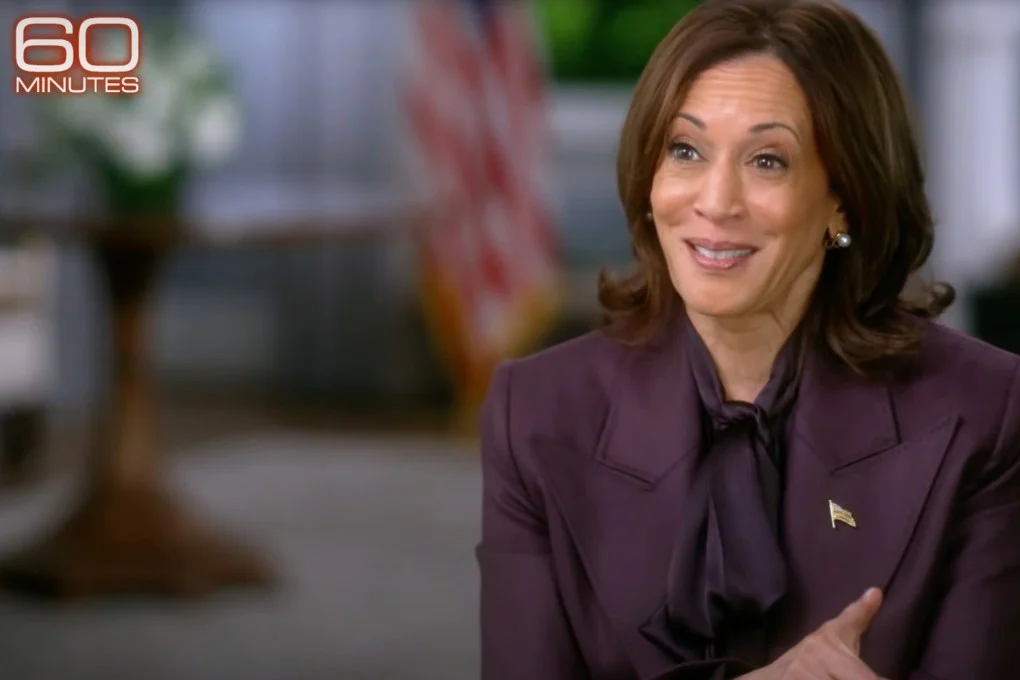This week there’s been a scandal about the way 60 Minutes edited out answers from Vice President Kamala Harris in an interview with them on Sunday night and this was blamed as being election interference. These allegations emerged after a string of critics highlighted a discrepancy between Harris’ original answers and the program itself.
This all became known when Geiger Capital tweeted on X (previously Twitter) accusing 60 Minutes of censoring and stitching Harris’ answers together to appear to speak coherently during an interview with Israeli Prime Minister Benjamin Netanyahu about the ongoing region conflict.
Allegations of Editing and Splicing
In the original exchange, CBS News’ Bill Whitaker asked Harris, “But it seems that Prime Minister Netanyahu is not listening?” Harris’ response, which critics described as incoherent, stated:
“Well, Bill, the work that we have done has resulted in a number of movements in that region by Israel that were very much prompted by or a result of many things, including our advocacy for what needs to happen in the region.”
Yet, when Harris answered him in the edited version on 60 Minutes, it felt like he’d given an entirely different one:
“We are not going to stop pursuing what is necessary for the United States to be clear about where we stand on the need for this war to end.”
The ostensible addition of another sentence from another section of the interview has led to accusations that 60 Minutes doctored Harris’ statements in order to make her seem more rational than she was in the candid video. Others think that this kind of selective editing is journalistic fraud and possibly part of an effort to distort public perception of Harris in advance of the 2024 presidential election.
Accusations of Bias and Misinformation
Geiger Capital, which first brought the alleged editing to light on X, wrote, “60 Minutes cut Kamala’s nonsense answer on Israel and replaced it with a completely separate sentence she said earlier in the interview… Mixing and matching questions and answers. This isn’t journalism. It’s fraud.”
This post was immediately posted widely and the programme was attacked. These allegations fuel debates about media bias and the power of popular media in influencing public perception, particularly in election cycles.
It isn’t the first time 60 Minutes has come under fire for it. 2017: Lesley Stahl sat on Donald Trump for an interview and lectured him that Barack Obama had not hacked into Trump’s 2016 campaign — a claim later proven to be false. They charge that the most recent charges of selective editing are part of a lineage of media abuses that have damaged public confidence.
Reactions from Supporters and Opponents
The videotaped interview is causing controversy with conservative pundits and Republican Party activists who suspect that the media is playing into the hands of the Democratic Party for the election.
“Democrats are running a buffoon who can’t even complete a sentence. Think about that for a minute! You really can’t trust a single thing they tell you,” one user wrote on X.
In contrast, Harris supporters have played down the scandal and claim that it’s a common ruse in today’s polarized political landscape.
Calls for Transparency and Accountability.
The accusations against 60 Minutes have resuscitated calls for transparency in the news and prompted more scrutiny of how the media filter and feature interviews with politicians. According to opponents, it’s important to believe the media because in an election year, voters are counting on accurate information to make choices.
To date, CBS News hasn’t commented on the allegations, nor has any formal statement been issued regarding the editing decisions. But, the incident has only escalated the 2024 election scandal, with both camps accusing each other of disinformation and extortion.
For more information, please visit CBS News and Reuters.

